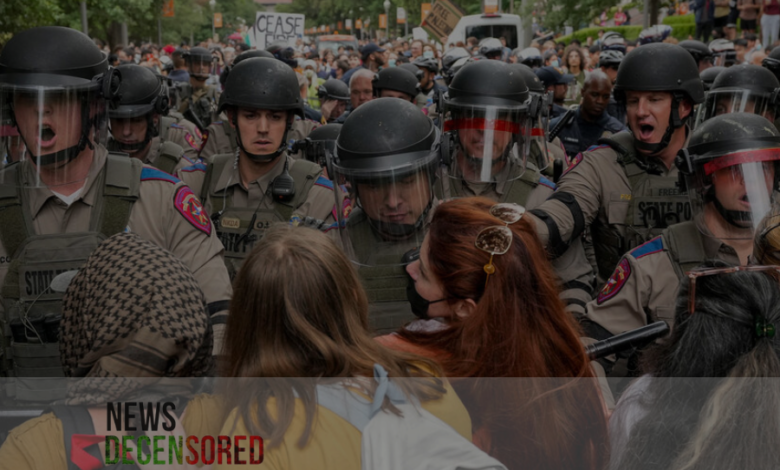UK Campus Protests Against Gaza War Dwindle Amid Administrative Pushback

Student encampments across UK campuses protesting the ongoing war in Gaza are dwindling over the summer, facing resistance from university administrators and diminishing numbers and enthusiasm. Initially, 36 encampments were active across England, Wales, and Scotland by the end of May. Now, only around a dozen remain. Protesters at these sites are fighting legal battles to stay, including those at universities in Bristol, London, and Birmingham.
On Friday, the University of Nottingham joined the growing list of institutions to seek an order to remove an encampment estimated to be about ten tents. Possession orders sought by Nottingham and Birmingham universities are due for a high court decision next week. However, a county court only recently decided on a similar order by Bristol University and set further sessions for later this month.
Persistent Protests and Legal Battles
QMUL students have been protesting since May, and they continue even though QMUL is going to court to have them removed. One of the respondents, a 21-year-old Palestinian student, complained about the university’s decision to begin a legal battle without a discussion. This was the mentality of this particular university when the students were protesting for a humanitarian cause: instead of sitting with us, they took us to court, the student pointed out.
Holding a protest, the participants mainly reside in tents on the lawn in East London; nevertheless, despite the inconveniences that the ardent about twenty participants experience, the situation remains inspiring: local people bring food and other items to the protesters. The protestors are chanting that we want QMUL to cut its ties with these firms, Barclays – BAE Systems. Based on the obtained data, a university official gave the health and safety concerns as the rationale for shutting down the encampment.
Administrative Responses and Wider Impact
University managers in the UK were eager for the situation to end, especially since protests at US colleges became violent. However, due to the nature of the conflict, the administrators have proceeded to Crack Down on encampments by implementing security and legal measures.
While Oxford, an encampment initially established at the university’s natural history museum, was occupied shortly after, a similar one at the Radcliffe Camera Library endures. On the other hand, the authority at Reading University also appreciated the protest and willingly decided to terminate business relations with Barclays. The vice-chancellor of Reading, Prof Robert Van de Noort, appreciated the protesters for being orderly and peaceful and urged them to work more in other legal ways.
Controversy and Support
The protests have been met with much controversy, even among institutions that have shown support for them, including universities. According to sources, the vice-chancellor of the University and College Union at the School of Oriental and African Studies (SOAS), London, recently faced a vote of no confidence from the members after he squared up to and insulted a student at the encampment. Still, a SOAS spokesperson underlined the university’s desire to keep free speech intact as a freedom that needs to be preserved.
Other universities like Newcastle have objected to the protest attracting non-students, and several graffiti cases have extended beyond the protest site. Some of these shelters have been forced to shut down because of legal threats, such as the one at the University of Leeds, though a student coalition has threatened to regroup in September.
A number of the encampments are slowly becoming near empty as others are reoccupied. Speaking to the newspaper, a university officer observing the slowdown of the protest movement and further administrative and legal crackdown said: “There are now more tents than students,”




